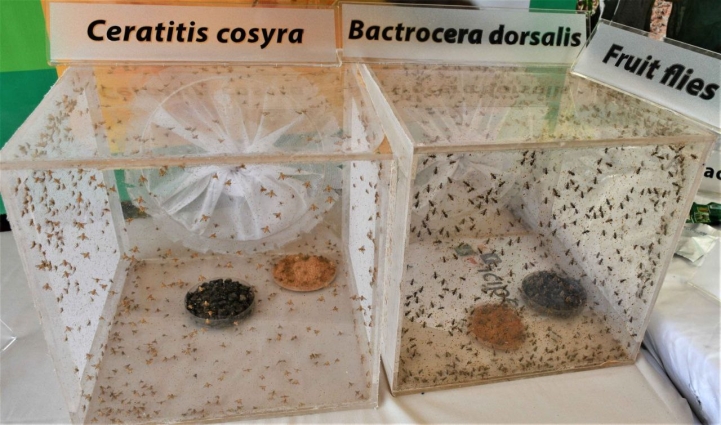
Fruit flies pose a significant threat to fruit farmers, causing considerable damage to their crops. These tiny insects puncture the skin of fruits to lay their eggs, introducing bacteria from their intestinal flora into the fruit. The presence of these bacteria leads to the decay of the surrounding tissues. Once the eggs hatch, the resulting maggots feed on the flesh of the fruit, creating tunnels or galleries. This process not only further accelerates fruit decay but also provides entry points for pathogens, rendering the fruits unsuitable for human consumption.
In addition to the direct damage caused by fruit flies, there are indirect losses for fruit farmers, particularly those engaged in export. Many countries impose strict quarantine restrictions to prevent the entry of fruit flies, as nearly all fruit fly species are considered quarantine pests. Consequently, fruit that is infested with fruit flies is often rejected for export, leading to economic losses for farmers.
Kenyan mango farmers, for example, have experienced significant challenges due to fruit flies. The impact was severe enough that Kenya had to impose a self-ban on its mango exports to international markets, particularly Europe and America. This decision came after European authorities seized mango shipments between 2010 and 2014, attributing the cause to fruit fly infestation. Presently, the country is working towards re-establishing its presence in the international mango market.
To combat the fruit fly problem, a comprehensive campaign was launched employing the principles of Integrated Pest Management (IPM), with collaboration between private and public sector actors. IPM focuses on minimizing the use of chemical pesticides and instead promotes a holistic approach to fruit fly management. The goal is to produce fruit that is free from fruit flies and pesticide residues, ensuring compliance with the food safety standards necessary for both export and domestic markets.
The African fruit fly management program, led by the International Centre of Insect Physiology and Ecology (ICIPE), plays a crucial role in educating farmers on effective methods to address the fruit fly issue. By sharing knowledge and implementing IPM strategies, farmers are equipped with the tools and techniques needed to manage fruit fly infestations and safeguard their crops.